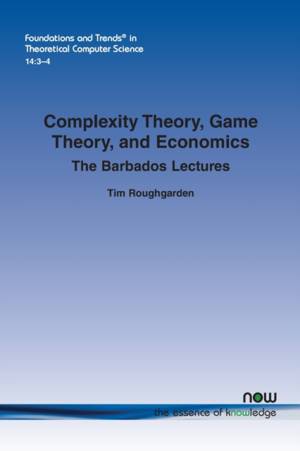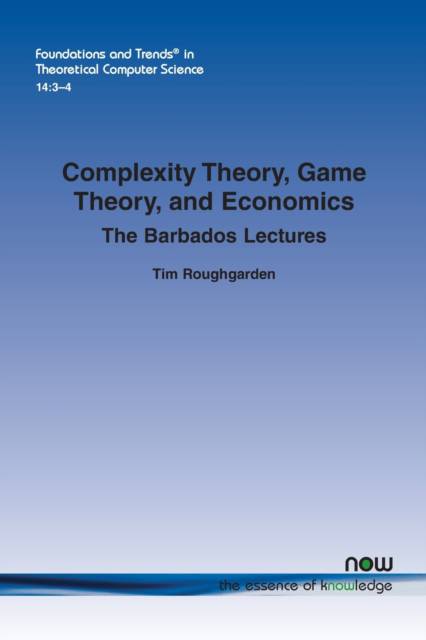
- Afhalen na 1 uur in een winkel met voorraad
- Gratis thuislevering in België vanaf € 30
- Ruim aanbod met 7 miljoen producten
- Afhalen na 1 uur in een winkel met voorraad
- Gratis thuislevering in België vanaf € 30
- Ruim aanbod met 7 miljoen producten
Zoeken
€ 106,45
+ 212 punten
Omschrijving
This monograph comprises a series of ten lectures divided into two parts. Part 1, referred to as the Solar Lectures, focuses on the communication and computational complexity of computing an (approximate) Nash equilibrium. Part 2, the Lunar Lectures, focuses on applications of computational complexity theory to game theory and economics. The goal of this short-course is twofold: (i) to explain how complexity theory has helped illuminate several barriers in economics and game theory, and (ii) to illustrate how game-theoretic questions have led to new and interesting complexity theory, including several very recent breakthroughs. While the solar lectures build on each other to some extent, the lunar lectures are episodic and can be read independently of each other. Most of the lunar lectures have the flavor of "applied complexity theory" and are less technically intense. Written in a relaxed style, the author uses his didactic expertise to guide the reader through the theory in an insightful and enjoyable manner. No background in game theory is assumed, making the whole text informative and accessible to a wide audience. This monograph gives the reader an excellent introduction to the basics of the subject and highlights some of the most recent breakthroughs in research. It provides the reader with a launch pad for further research.
Specificaties
Betrokkenen
- Auteur(s):
- Uitgeverij:
Inhoud
- Aantal bladzijden:
- 204
- Taal:
- Engels
- Reeks:
- Reeksnummer:
- nr. 39
Eigenschappen
- Productcode (EAN):
- 9781680836547
- Verschijningsdatum:
- 4/03/2020
- Uitvoering:
- Paperback
- Formaat:
- Trade paperback (VS)
- Afmetingen:
- 156 mm x 234 mm
- Gewicht:
- 294 g

Alleen bij Standaard Boekhandel
+ 212 punten op je klantenkaart van Standaard Boekhandel
Beoordelingen
We publiceren alleen reviews die voldoen aan de voorwaarden voor reviews. Bekijk onze voorwaarden voor reviews.











